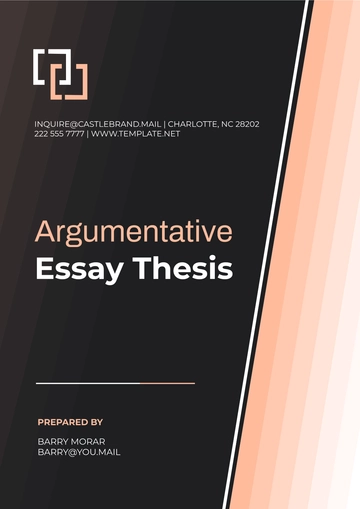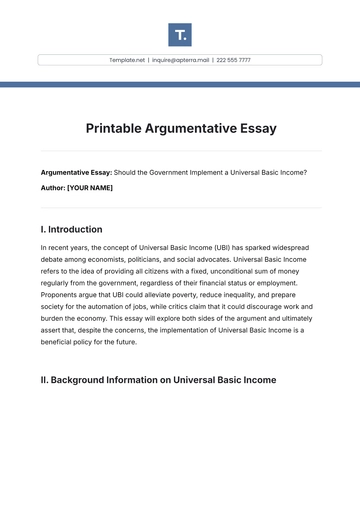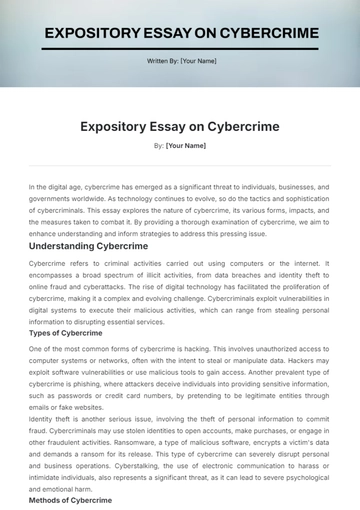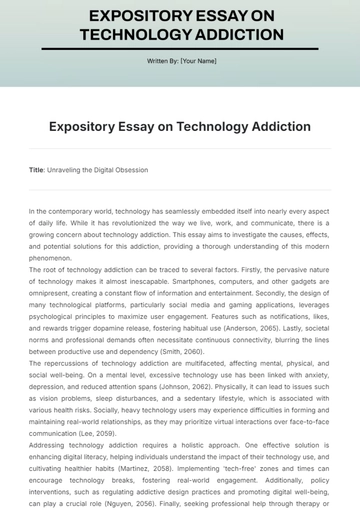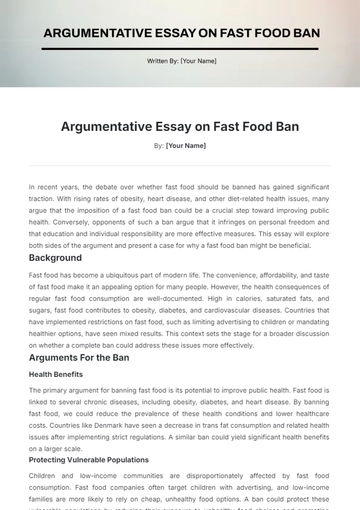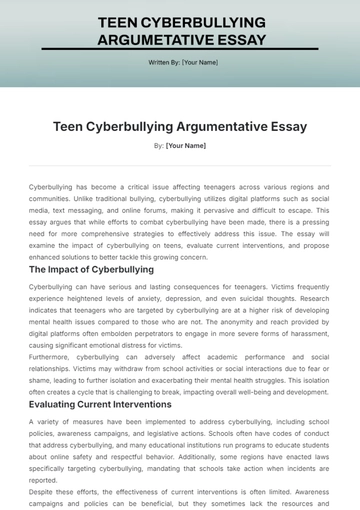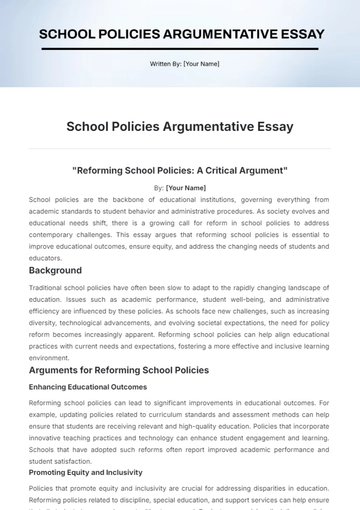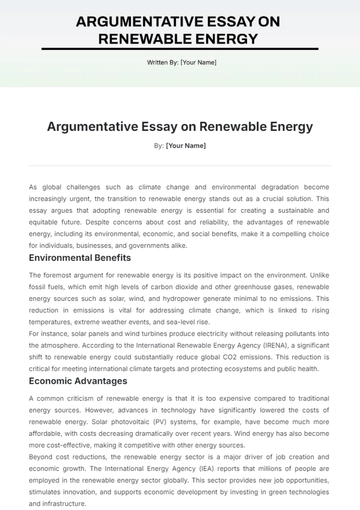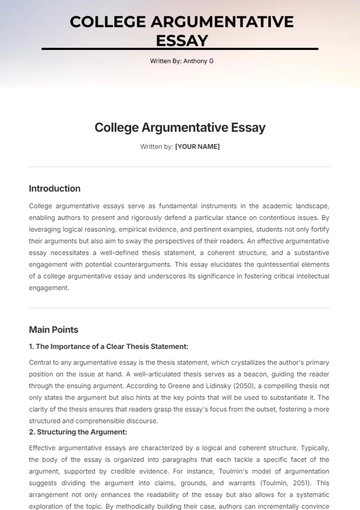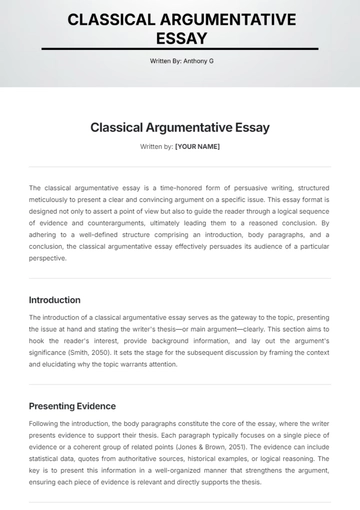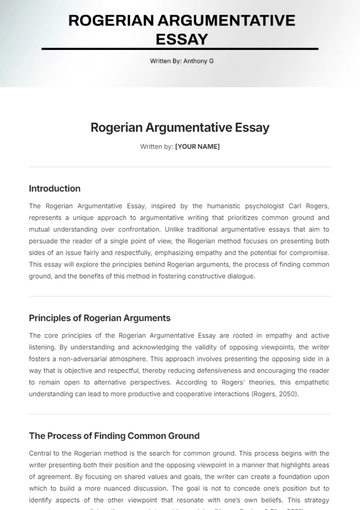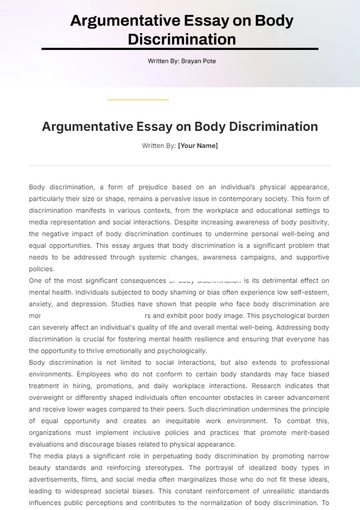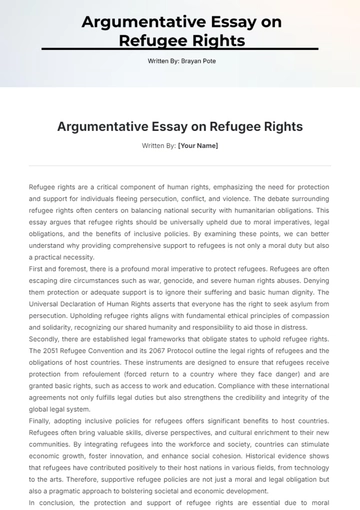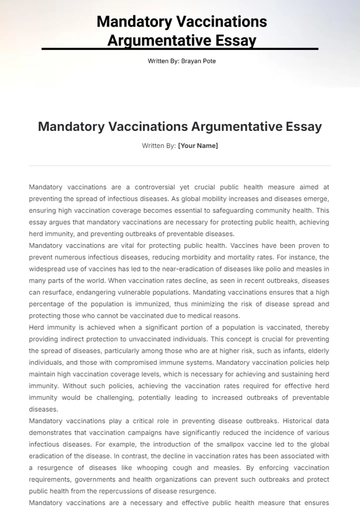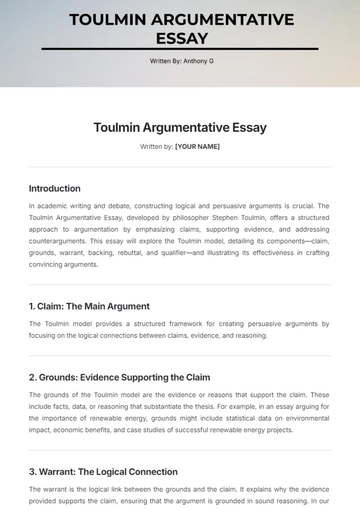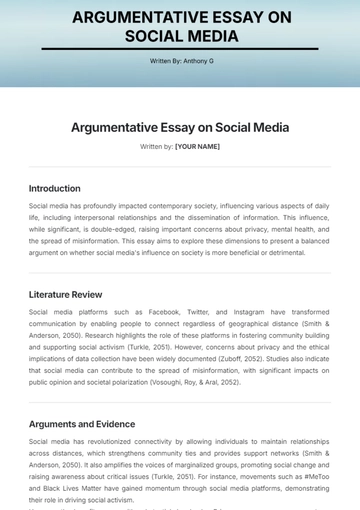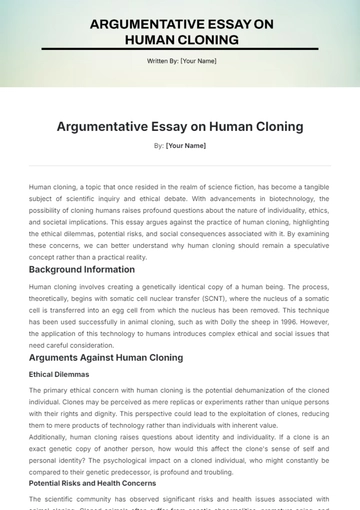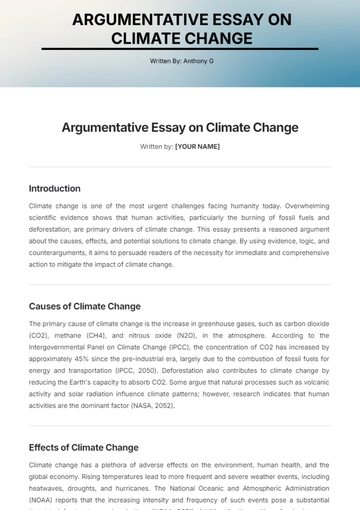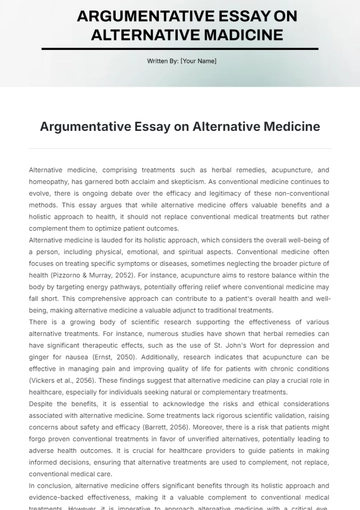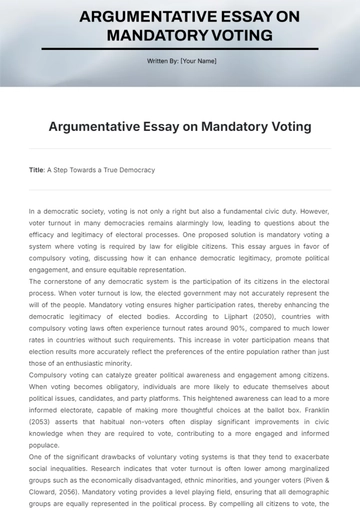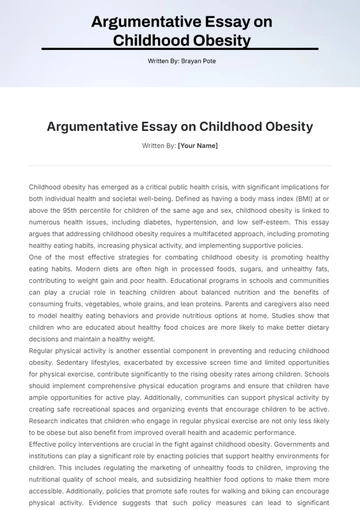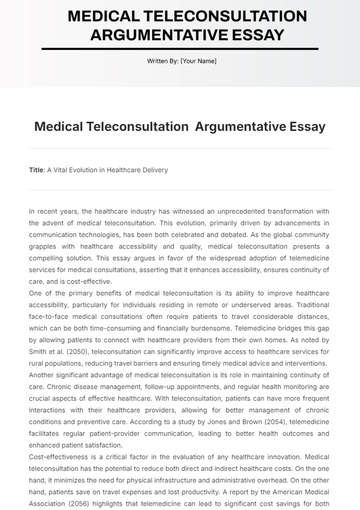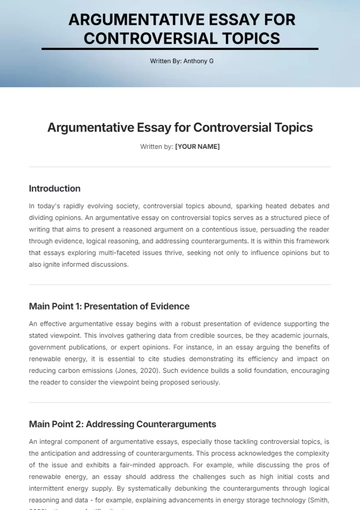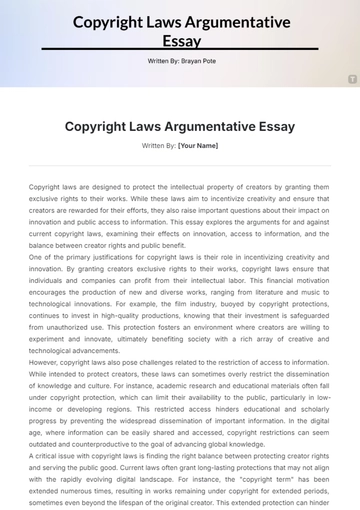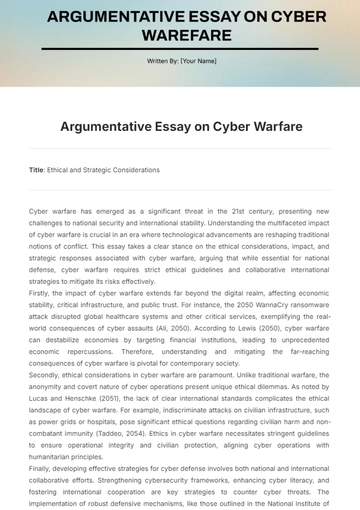Free Argumentative Essay on Climate Change
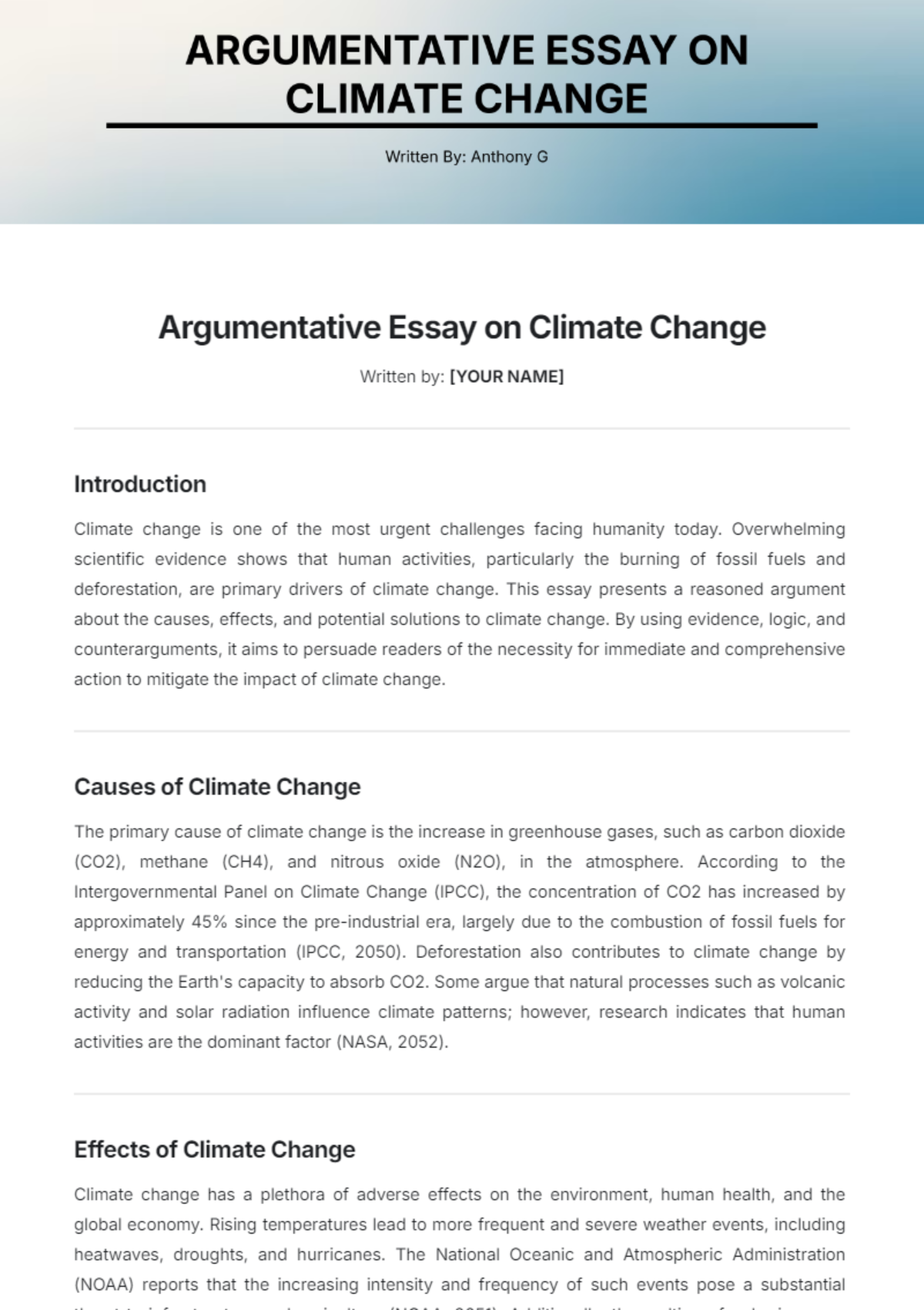
Written by: [YOUR NAME]
Introduction
Climate change is one of the most urgent challenges facing humanity today. Overwhelming scientific evidence shows that human activities, particularly the burning of fossil fuels and deforestation, are primary drivers of climate change. This essay presents a reasoned argument about the causes, effects, and potential solutions to climate change. By using evidence, logic, and counterarguments, it aims to persuade readers of the necessity for immediate and comprehensive action to mitigate the impact of climate change.
Causes of Climate Change
The primary cause of climate change is the increase in greenhouse gases, such as carbon dioxide (CO2), methane (CH4), and nitrous oxide (N2O), in the atmosphere. According to the Intergovernmental Panel on Climate Change (IPCC), the concentration of CO2 has increased by approximately 45% since the pre-industrial era, largely due to the combustion of fossil fuels for energy and transportation (IPCC, 2050). Deforestation also contributes to climate change by reducing the Earth's capacity to absorb CO2. Some argue that natural processes such as volcanic activity and solar radiation influence climate patterns; however, research indicates that human activities are the dominant factor (NASA, 2052).
Effects of Climate Change
Climate change has a plethora of adverse effects on the environment, human health, and the global economy. Rising temperatures lead to more frequent and severe weather events, including heatwaves, droughts, and hurricanes. The National Oceanic and Atmospheric Administration (NOAA) reports that the increasing intensity and frequency of such events pose a substantial threat to infrastructure and agriculture (NOAA, 2051). Additionally, the melting of polar ice caps and glaciers is causing sea levels to rise, threatening coastal communities with flooding. Human health is at risk due to the spread of vector-borne diseases, while economies suffer from the loss of productivity and increased costs of disaster relief.
Potential Solutions
Addressing climate change requires a multifaceted approach involving international cooperation, innovative technology, and changes in individual behavior. One of the most effective strategies is transitioning to renewable energy sources such as wind, solar, and hydroelectric power. According to the International Renewable Energy Agency (IRENA), doubling the share of renewables in the global energy mix could save up to $4.2 trillion annually by 2050 through reduced pollution and health care costs (IRENA, 2022). Governments must also implement policies that encourage energy efficiency, such as stricter emissions regulations and financial incentives for green technology. On an individual level, reducing meat consumption, recycling, and using public transportation can collectively make a significant impact.
Conclusion
In conclusion, climate change is predominantly caused by human activities, particularly the burning of fossil fuels and deforestation. Its effects are wide-ranging and severe, impacting the environment, human health, and economies worldwide. However, there are viable solutions available that require both collective global action and individual efforts. By embracing renewable energy, enhancing policies, and making conscious lifestyle changes, we can mitigate the impact of climate change and pave the way for a sustainable future.
Bibliography
IPCC. (2050). Climate Change 2050: The Physical Science Basis. Contribution of Working Group I to the Sixth Assessment Report of the Intergovernmental Panel on Climate Change. Cambridge University Press.
NASA. (2052). Climate Change: How Do We Know? Retrieved from https://climate.nasa.gov/evidence/
NOAA. (2053). Global Warming and Hurricanes. Retrieved from https://www.gfdl.noaa.gov/global-warming-and-hurricanes/
- 100% Customizable, free editor
- Access 1 Million+ Templates, photo’s & graphics
- Download or share as a template
- Click and replace photos, graphics, text, backgrounds
- Resize, crop, AI write & more
- Access advanced editor
The Argumentative Essay on Climate Change Template from Template.net is fully customizable and editable to meet your specific needs. Editable in our AI Editor too, this professionally designed template ensures a well-structured essay. Simply personalize the content and format with ease, saving time and effort on creating an impactful argumentative essay.
